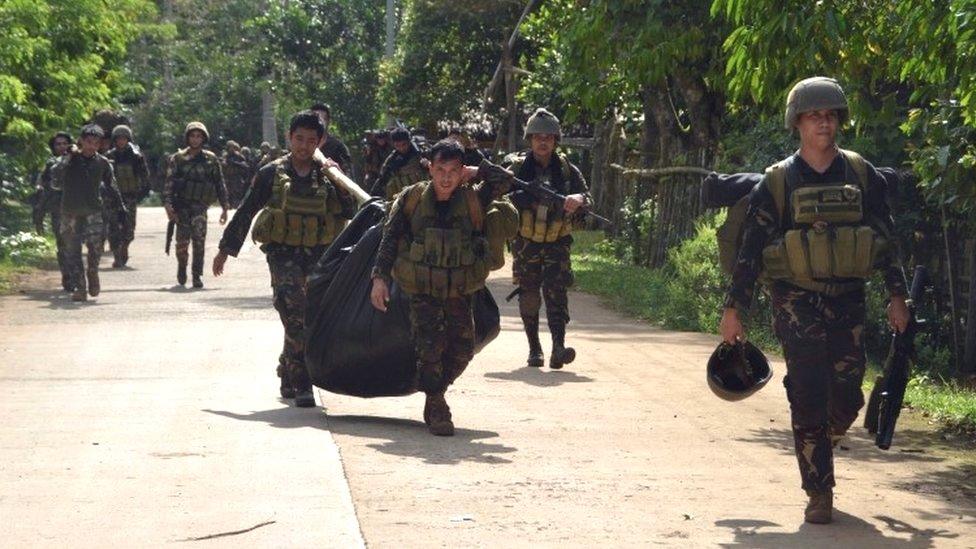Philippines: Soldiers killed in Abu Sayyaf fighting
- Published

The Philippines has faced separatist movements for decades in Mindanao
At least 12 soldiers from the Philippines have been killed during heavy fighting with Abu Sayyaf militants, the army have said.
It means Monday was the deadliest day for Philippine troops since President Rodrigo Duterte was elected in May.
Abu Sayyaf is one of the smallest and most violent jihadist groups in the southern Philippines.
Its name means "bearer of the sword" and it is notorious for kidnappings and attacking civilians and the army.
The Islamic State threat in South East Asia
An army spokesman was quoted by as saying that the soldiers were killed while fighting about 70 Abu Sayyaf fighters near the southern city of Barangay Maligaya.
At least five soldiers were wounded in Monday's fighting.
President Duterte ordered troops to eradicate Abu Sayyaf militants last week after they beheaded a kidnapped villager whose family was too impoverished to pay a ransom.
Officials said Monday's troop losses came after the army killed about 21 Abu Sayyaf gunmen, including an influential commander, on Friday and Saturday in fighting triggered by the beheading.
On Sunday eight Islamic militants linked to so-called Islamic State (IS) were freed from jail by at least 20 fighters from the Maute group who turned up at the Lanao del Sur jail in the southern city of Marawi to release them.
The Maute group has carried out several bombings and kidnappings in the southern Mindanao region.
The Philippines has faced separatist movements for decades in Mindanao, which has a significant Muslim population - the Philippines is mainly Catholic.
The Maute group carries the black flag and insignia of IS, and has attacked troops, beheaded a soldier and beheaded two local workers earlier this year.
Several armed groups in the Philippines have pledged allegiance to IS, although the country's military says there is no evidence of active co-operation with foreign militants.
- Published28 August 2016
- Published14 June 2016
- Published6 April 2016
- Published14 June 2016